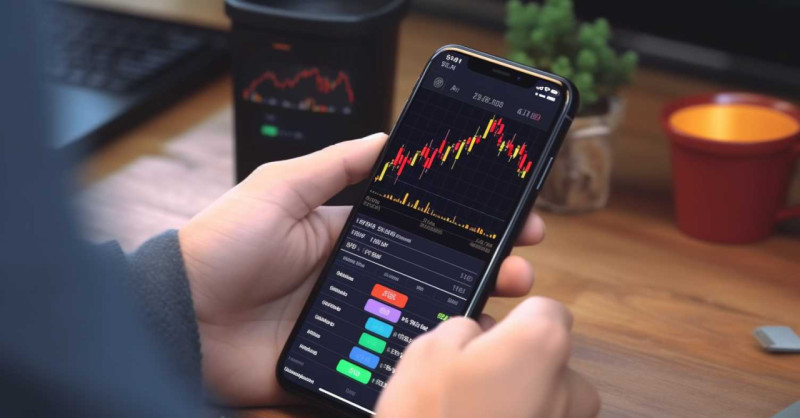
Introduction
In the dynamic world of trading, where market conditions can shift rapidly, having the right information at the right time can make the difference between a profitable trade and a missed opportunity. This is where trading signals come into play.
Definition of Trading Signals
Trading signals are essentially suggestions or alerts generated by algorithms, market analysis, or expert traders that indicate favorable conditions to enter or exit a trade in a specific asset. These signals can encompass various forms of trading including forex, stocks, commodities, and more. Typically, a trading signal will provide essential details such as:
- The Asset: What to buy or sell, e.g., a specific currency pair, stock, or commodity.
- The Action: Whether to buy or sell the asset.
- Entry Price: The price at which it's suggested to enter the trade.
- Stop-Loss: A price level set to limit potential losses if the market moves against the trade.
- Take-Profit: A price level set to realize gains when the market moves in favor of the trade.
The primary purpose of these signals is to alleviate some of the challenges faced by traders in continuously monitoring markets and analyzing vast amounts of data. By providing a more streamlined approach to trading, signals can help both novice and experienced traders make informed decisions, potentially increasing their chances of realizing profits.
However, while trading signals can serve as invaluable tools, it's crucial to approach them with a critical mindset. No signal, no matter how sophisticated, can guarantee success. It's always essential for traders to conduct their own research and due diligence alongside using trading signals.
In our interconnected digital age, the mode of delivery for these signals has evolved, with platforms like WhatsApp emerging as popular channels. But why is this the case? In the subsequent sections, we will delve into the world of trading signals on WhatsApp, exploring its benefits, potential pitfalls, and best practices.
The Digital Revolution
From the days of trading floors filled with shouting brokers to the quiet hum of modern data centers powering global financial transactions, the finance world has always been at the forefront of adopting transformative technologies. Central to this recent transformation has been the rise of mobile technology and instant messaging, which has redefined how the industry communicates, operates, and innovates.
The Onset of Mobile Technology in Finance
The 21st century saw the smartphone metamorphose from a luxury item into an indispensable tool for everyday life. Finance was one of the sectors that rapidly recognized its potential, integrating mobile technology in several pivotal ways:
Mobility and Accessibility: Mobile devices enabled traders, financial advisors, and everyday consumers to access market data, trading platforms, and banking services irrespective of their location. This led to a democratization of finance, opening up opportunities for a larger segment of the population.
Real-time Data: With smartphones and dedicated financial apps, real-time market data became instantly accessible. This allowed for quicker decision-making, as traders could react to market shifts on the fly.
Personalized Financial Services: Mobile technology has facilitated the rise of robo-advisors, budgeting apps, and personalized financial alerts, catering to individual needs and preferences.
Instant Messaging: The New Financial Communication Channel
While emails once dominated as the primary mode of communication in finance, the immediacy required in today's fast-paced markets made instant messaging (IM) platforms more attractive. Here's why IM gained traction:
Speed: In the trading world, every second count. Instant messaging ensures that important messages are delivered and seen immediately.
Group Communication: Traders, analysts, and brokers can form groups to discuss market trends, share insights, or alert about immediate opportunities, ensuring collaborative decision-making.
Security: Modern IM platforms, especially those tailored for professionals, come equipped with end-to-end encryption and robust security features that protect sensitive financial information.
Multimedia Capabilities: Besides text, IM platforms allow for the sharing of charts, graphs, voice notes, and even video calls, providing a richer mode of communication.
WhatsApp, with its massive global user base and user-friendly interface, has naturally found its niche within the financial community. As we'll explore further, platforms like WhatsApp aren't just used for casual chats but are now integral to delivering trading signals, discussing market analysis, and more.
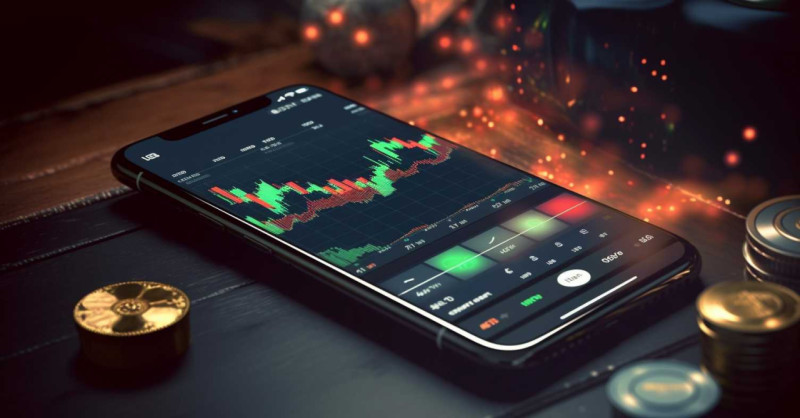
Background on WhatsApp and Its Use in Trading
A Brief History of WhatsApp
2009: Birth of a Messaging Giant
WhatsApp was founded by Brian Acton and Jan Koum, former employees of Yahoo!, as a simple status update application. The app quickly pivoted to messaging, given the growing demand for quick and efficient communication tools.
Rapid Adoption
Its user-friendly interface, the absence of ads, and end-to-end encryption led to a rapid increase in its user base. By the early 2010s, WhatsApp had positioned itself as a dominant player in the instant messaging space.
2014: Acquisition by Facebook
Recognizing its immense potential and expansive user base, Facebook acquired WhatsApp for a staggering $19 billion, one of the biggest tech acquisitions of the time.
Continuous Evolution
Post-acquisition, WhatsApp introduced several new features, including voice and video calls, business accounts, and end-to-end encryption for all conversations, solidifying its position as a versatile messaging platform.
WhatsApp by the Numbers
Users Worldwide: As of my last update in 2022, WhatsApp boasted over 2 billion users globally, making it one of the most widely used messaging apps in the world.
Daily Message Volume: Over 100 billion messages are sent on WhatsApp every day, highlighting its pivotal role in global communication.
Presence in Countries: Available in more than 180 countries and in over 60 different languages, its universal appeal is undeniable.
Business Usage: Over 50 million business accounts exist on WhatsApp, showcasing its transition from a purely personal communication tool to one that caters to professional and business needs.
WhatsApp's Emergence in the World of Trading
Instantaneous Communication: Traders require swift communication channels to capitalize on market opportunities. WhatsApp, with its real-time messaging capabilities, became an obvious choice.
Group Chats and Broadcast Lists: These features allowed traders and analysts to disseminate information quickly to a large audience, be it trading signals, market updates, or relevant news.
End-to-End Encryption: The security feature ensured that sensitive market data and trading strategies shared on the platform remained confidential.
Multimedia Sharing: Traders could easily share charts, graphs, and other visual data relevant to market analysis.
Global Reach: Given its widespread use, WhatsApp became a common platform for international traders to interact, bridging geographic and time-zone gaps.
Background on WhatsApp and Its Use in Trading
The Evolution: From Traditional Communication to Instant Messaging in Trading
Trading, a profession as old as civilization itself, has seen numerous shifts in its methods of communication over the years. This transition from traditional methods to instant messaging platforms like WhatsApp has been driven by the constant need for speed, efficiency, and accessibility in the trading world.
Traditional Communication Methods in Trading
Face-to-Face Communication: Historically, much of trading was conducted in person, especially in trading floors and stock exchanges. The frenzied atmosphere of these places, with traders shouting orders, was the hallmark of stock exchanges around the world.
Landline Telephones: As technology progressed, traders began relying on phones to place orders and communicate with brokers, analysts, and other traders.
Fax Machines: In the pre-internet era, faxes became a method to send and receive trade orders and confirmations.
Emails: With the advent of the internet, emails became a popular medium for longer-form communication, sending reports, and formal instructions.
Drivers for the Shift to Instant Messaging
Need for Speed: As global markets became interconnected and trading algorithms got faster, the window of opportunity for capitalizing on a trade began to narrow. Instant messaging offered the real-time communication traders needed.
Globalization of Markets: With trading happening across time zones, traders needed a communication tool that was both instant and accessible 24/7.
Mobility: Traders and brokers began to operate outside of traditional office settings. Mobile-friendly instant messaging platforms ensured they stayed connected, no matter where they were.
Collaborative Decision Making: The group chat functionality in IM platforms allowed multiple stakeholders, like traders, analysts, and brokers, to discuss and make decisions collaboratively.
WhatsApp's Dominance in Trading Communication
Ubiquity: Given that WhatsApp was already a popular messaging platform among the general populace, its adoption in the professional realm, including trading, was seamless.
Security: End-to-end encryption ensured that trade details, market strategies, and other sensitive information remained secure.
User-Friendly Interface: Its easy-to-use interface meant that there was minimal learning curve, even for those who were new to the platform.
Cost-Efficient: WhatsApp operates over the internet, reducing costs compared to traditional SMS or international phone calls.
Integration with Other Tools: Traders could easily integrate WhatsApp with other trading tools, ensuring a more cohesive trading experience.
In conclusion, the transition from traditional communication methods to instant messaging platforms like WhatsApp in the trading realm was not just inevitable but necessary. It reflects the broader shifts in technology and the ways in which the modern world communicates and conducts business. In the realm of trading, where every second count, platforms like WhatsApp have become invaluable.
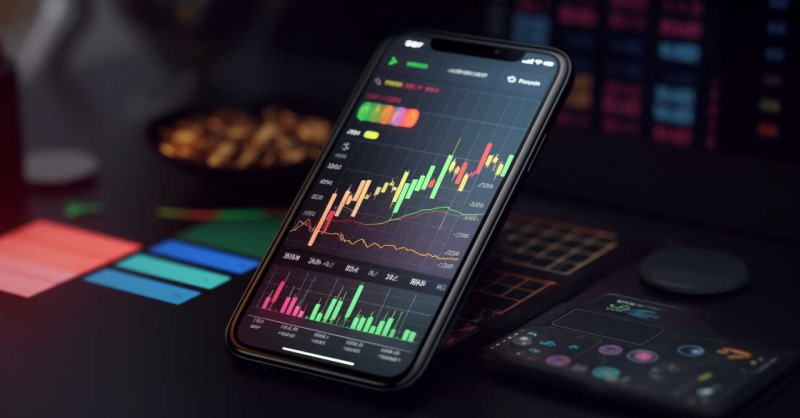
The Advent of Trading Signals on WhatsApp
Trading Signals Meet Instant Messaging: The Rise of WhatsApp
Trading signals have been an instrumental tool for traders, providing timely insights into market opportunities. As technology evolved, the delivery method for these signals transitioned from emails, websites, and dedicated apps to instant messaging platforms. At the forefront of this shift has been WhatsApp, owing to its vast user base and suite of features tailored for quick communication.
Why Traders Prefer WhatsApp for Signals
Real-Time Alerts:
Trading is all about timing. The immediacy of WhatsApp ensures that traders receive signals as soon as they are generated. This promptness can mean the difference between capitalizing on an opportunity and missing out.
Global Accessibility:
WhatsApp is used worldwide and is not restricted by geographic boundaries. This universal access ensures that traders from different parts of the world can receive signals simultaneously, fostering a global trading community.
Convenience:
Most traders already use WhatsApp for personal communication. Receiving trading signals on the same platform reduces the need to juggle between multiple apps or platforms, streamlining the trading process.
Group Chats and Broadcast Lists:
Signal providers can create dedicated groups or broadcast lists for different asset classes or trading strategies. This allows for targeted dissemination of signals, ensuring that traders receive relevant information tailored to their trading preferences.
Interactive Communication:
Unlike one-way communication channels, WhatsApp allows traders to interact with signal providers. This two-way communication enables traders to ask questions, seek clarifications, or discuss strategies in real-time.
Multimedia Support:
Trading signals are not just about text. The ability to share charts, graphs, and even video analyses enhances the richness of the information being shared, providing traders with a holistic view of the market scenario.
End-to-End Encryption:
Financial data is sensitive. WhatsApp's end-to-end encryption ensures that trading signals and any accompanying data remain confidential, only accessible to the sender and the recipient.
Cost-Effectiveness:
Sending signals via traditional SMS can be costly, especially when targeting an international audience. WhatsApp, being an internet-based service, offers a more cost-effective solution for signal providers.
Ease of Notification:
With push notifications, traders can be alerted immediately when a new signal arrives, ensuring they don't miss out even if they're not actively using the app.
In essence, the amalgamation of WhatsApp's unique features and the inherent needs of trading has made it a preferred platform for trading signals. It symbolizes the confluence of modern technology with age-old trading practices, resulting in a more efficient and interactive trading environment.
Harnessing the Power of Real-Time: The Efficiency of WhatsApp Alerts in Trading
In the fast-paced realm of trading, the adage "time is money" holds particular significance. With markets being in a perpetual state of flux, the time-lapse between receiving a trading signal and acting on it can determine the success or failure of a trade. Herein lies the unparalleled advantage of real-time alerts on platforms like WhatsApp.
Understanding the Impact of Real-Time Alerts
Immediate Action:
Markets can change in the blink of an eye. Real-time alerts enable traders to take immediate action, whether it's buying, selling, adjusting stop-loss orders, or taking profits.
Capitalizing on Short-Term Opportunities:
Especially in day trading or forex markets, where fluctuations can be swift and significant, real-time signals ensure traders can capitalize on short-term price movements.
Reduced Slippage:
Slippage refers to the difference between the expected price of a trade and the price at which the trade is executed. Real-time alerts can reduce slippage by ensuring traders act promptly, getting closer to the desired entry or exit point.
Timely Risk Management:
Trading isn't just about capitalizing on opportunities; it's equally about managing risks. Real-time alerts about sudden market shifts can help traders adjust their positions or set protective measures in place instantly.
Staying Ahead of the Crowd:
In many instances, the first movers in the market can secure the best positions. Being alerted instantly ensures traders can be among the first to react to new market data or trends.
Why WhatsApp Stands Out for Real-Time Alerts
Push Notifications:
Even if the application isn't actively open, WhatsApp's push notifications ensure that traders are immediately alerted to new signals, ensuring no missed opportunities.
Reliability:
With a robust infrastructure, WhatsApp's uptime and delivery rate for messages are exceptional, ensuring that signals are not delayed due to technical glitches.
Global Reach:
WhatsApp's vast user base and global presence mean that traders from different time zones can receive signals synchronously, creating a level playing field.
Customizable Alerts:
Through WhatsApp's settings, traders can customize notification tones or vibrations for particular chats or groups, allowing them to distinguish between regular messages and crucial trading signals.
Interactive Platform:
Beyond just receiving alerts, traders can instantly communicate with signal providers or fellow traders for clarifications or further discussions, fostering a collaborative trading environment.
In conclusion, the efficiency of real-time alerts, especially on a platform as ubiquitous and reliable as WhatsApp, has transformed the way traders interact with markets. It amplifies their ability to respond swiftly, ensuring they remain in sync with the ever-evolving rhythms of global financial landscapes.
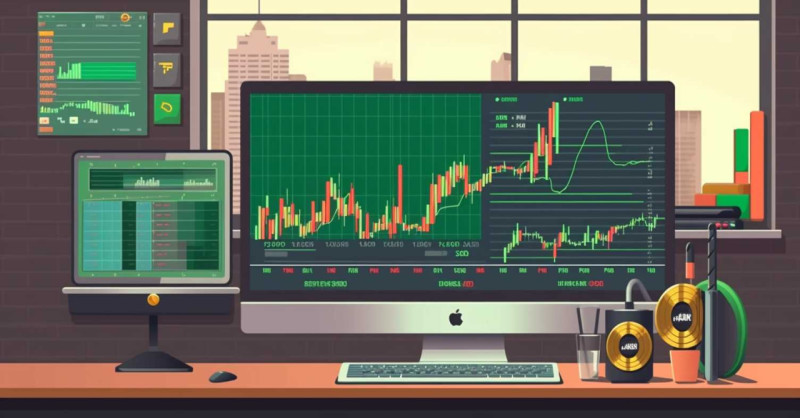
Benefits of Using WhatsApp for Trading Signals
The integration of WhatsApp into the financial trading sphere has been a transformative shift. As an instrument of change, WhatsApp offers a plethora of benefits that enhance the trading experience. At its core, this integration has been driven by the evolving needs of traders and the inherent strengths of the platform.
The first significant benefit is the instant delivery of trading signals. In an environment where milliseconds can make a meaningful difference, the immediacy of WhatsApp ensures that traders are kept abreast of market movements in real-time. This speed and efficiency in receiving signals mean that traders can make informed decisions without the anxiety of delays or missed opportunities.
Next, there's the sheer accessibility that WhatsApp brings to the table. With smartphones becoming ubiquitous, traders can now access signals anytime, anywhere. Whether you're at a coffee shop, waiting for a meeting, or on a beach vacation, the global reach of WhatsApp ensures that the market is always at your fingertips. This 24/7 access breaks down geographical and temporal barriers, making trading a truly global endeavor.
Safety and security, always a paramount concern in the trading world, are addressed through WhatsApp's end-to-end encryption. This feature ensures that all communication, including the dissemination of trading signals, remains private and confidential. Traders can be assured that their strategies, discussions, and data are shielded from prying eyes, providing a secure environment in which to operate.
Lastly, the platform is remarkably user-friendly. Most traders, like the general populace, already use WhatsApp in their daily lives. Thus, there's no learning curve involved. The familiar interface ensures that traders can focus on the content of the signals rather than navigating a new system. The ease of use, combined with functionalities like group chats, multimedia sharing, and voice notes, further enhances the experience, making trading seamless and intuitive.
In conclusion, the marriage of WhatsApp's features with the demanding nature of trading has resulted in a symbiotic relationship. The platform offers traders a blend of speed, accessibility, privacy, and simplicity, making it an indispensable tool in the modern trader's arsenal.
Challenges and Risks Associated with WhatsApp Trading Signals
While the advent of WhatsApp trading signals has brought about numerous advantages, it is essential to recognize the challenges and risks it introduces to the trading landscape. Being aware of these can help traders navigate the realm of instant messaging-based trading with a balanced perspective.
One of the foremost concerns is the issue of scams and frauds. As with any financial endeavor, the trading sphere is not immune to malicious actors looking to exploit unsuspecting individuals. With the widespread use of WhatsApp for trading signals, scammers have found a new medium to propagate their schemes. They might impersonate legitimate signal providers or create fake trading groups, promising exorbitant returns. Recognizing such fraudulent activities often comes down to the age-old wisdom: if it sounds too good to be true, it probably is. It's imperative for traders to conduct thorough research, verify the credentials of signal providers, and be wary of high-pressure tactics or promises of guaranteed profits.
Then, there's the question of the reliability of signals. Just as in traditional trading circles, not all signals delivered via WhatsApp are created equal. The quality of a signal can vary based on the expertise and intentions of the provider. Some might be well-researched and backed by sound analysis, while others might be mere speculations or attempts to manipulate the market. Traders should, therefore, seek testimonials, track records, and even trial periods to gauge the reliability of a signal provider. Continual education and a dose of skepticism can also act as safeguards against subpar or misleading signals.
Lastly, the over-reliance on technology, especially a platform like WhatsApp, can be a double-edged sword. While instant messaging brings trading signals directly to one's fingertips, there's the potential pitfall of becoming overly dependent on this mode of communication. Technical glitches, internet outages, or even issues with the app itself can disrupt the flow of signals. Moreover, an over-dependence can lead to a neglect of other essential aspects of trading, such as in-depth research or the cultivation of intuition. It's vital for traders to remember that while technology is an enabler, it should complement, not replace, a holistic trading strategy.
In summation, while WhatsApp trading signals have undeniably revolutionized the way many traders operate, it's crucial to approach this innovation with a discerning mind. By being aware of potential challenges and navigating them judiciously, traders can harness the benefits of instant messaging without falling prey to its pitfalls.
Key Features to Look for in a WhatsApp Trading Signal Provider
Navigating the realm of WhatsApp trading signals can be a daunting endeavor, especially given the array of providers vying for a trader's attention. However, by focusing on a set of essential features, traders can streamline their search and make informed decisions.
First and foremost, credibility stands as the cornerstone in choosing a signal provider. In the world of trading, past performance can offer insights into the provider's expertise and reliability. While past success doesn't guarantee future results, a consistent track record showcases a provider's understanding of market dynamics. Checking reviews, seeking testimonials, and even requesting case studies can be effective ways to gauge a provider's credibility. Additionally, traders can look into any recognitions, certifications, or affiliations the provider might hold in the trading community.
Response time is another crucial factor, especially in an environment where timing is paramount. The inherent advantage of using WhatsApp is its real-time communication capability. As such, a signal provider should capitalize on this by ensuring speedy delivery of signals and swift interactions. Delays, be it in receiving signals or getting responses to queries, can hamper trading opportunities. It's advisable to test a provider's response time, perhaps by initiating a conversation or seeking clarifications, before committing to their service.
Next, the accuracy of signals plays a pivotal role. A signal provider's primary value lies in their ability to offer insights that lead to profitable trades. While no provider can guarantee success every time, a high accuracy rate indicates their proficiency in reading the market. Traders should inquire about the provider's historical accuracy rate and perhaps seek a trial period to assess the quality of signals firsthand.
Lastly, a holistic trading experience goes beyond just receiving signals. This is where support and education come into play. An ideal signal provider should not just be a faceless entity delivering trade prompts but a partner in the trading journey. The availability of support channels, be it through direct chats, webinars, or FAQs, can make a significant difference, especially for novice traders. Furthermore, supplementary resources like market analyses, tutorials, or educational modules can enrich a trader's knowledge base and empower them to make more informed decisions.
In essence, choosing a WhatsApp trading signal provider is a blend of research, trial, and intuition. By prioritizing these key features and aligning them with personal trading goals, traders can find a provider that not only delivers signals but also contributes to their growth and success in the market.
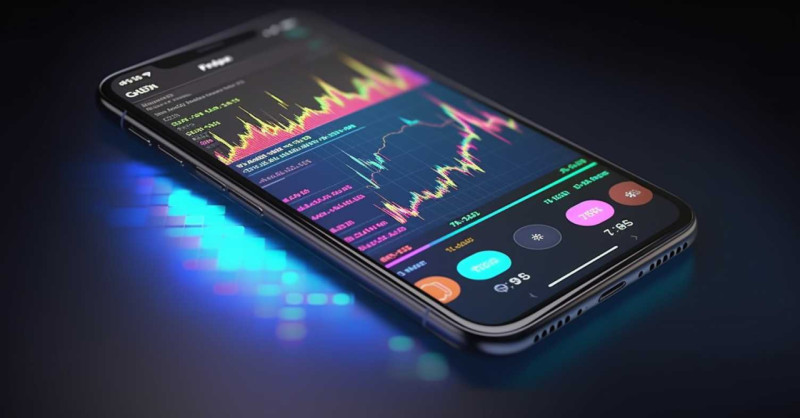
Alternatives to WhatsApp for Trading Signals
WhatsApp, with its widespread adoption and real-time notification system, has become a popular medium for trading signals. However, as the digital ecosystem grows, numerous other platforms and apps have emerged, each offering unique features that cater to traders. Diversifying the sources of trading signals across multiple platforms can be a strategic move for traders, ensuring they don't miss out on opportunities and have a more holistic view of the market.
1. Telegram: Akin to WhatsApp in its instant messaging capabilities, Telegram has carved a niche for itself in the realm of trading signals. With features like channels (which can host an unlimited number of subscribers) and bots (automated accounts with specialized functions), Telegram offers more scalability and automation options for signal providers. The platform's commitment to privacy and encryption also makes it a trusted choice for many traders.
2. Signal: Prioritizing end-to-end encryption and security, Signal has become a favorite for those who value their privacy. While not as widely adopted as Telegram or WhatsApp for trading signals, its emphasis on security has attracted a segment of traders, especially those dealing in large volumes or sensitive trades. Signal's open-source nature also means that it is continuously being refined and improved by the community.
3. Dedicated Trading Apps with Built-in Signal Functionalities: Moving beyond generic messaging apps, there are a plethora of dedicated trading apps that have integrated signal functionalities. These apps, often designed by financial institutions, trading platforms, or fintech startups, provide a more holistic trading experience. Not only do users receive signals, but they can also execute trades, view historical data, and analyze market trends all within the same ecosystem. Examples include platforms like MetaTrader (which offers MT4 & MT5), Thinkorswim, and eToro, among others. These apps often come with added layers of data security, real-time market data integration, and tools for advanced technical analysis.
4. Other Messaging Platforms: While WhatsApp, Telegram, and Signal dominate the conversation, other messaging apps like Viber, Line, and WeChat have also been utilized by traders in specific regions or communities. While not as popular globally for trading signals, these platforms offer unique features and cater to specific demographic groups.
In conclusion, while WhatsApp has been a transformative force in the realm of trading signals, the digital age offers a variety of platforms each with its strengths. Traders, based on their priorities—be it security, functionality, or regional preference—can choose from this spectrum of options, ensuring they stay ahead of the curve and maximize their trading potential.
Best Practices for Traders Using WhatsApp
Embracing WhatsApp as a tool for trading signals is an acknowledgment of the evolving landscape of modern trading. However, simply receiving signals on the platform doesn't ensure success. To extract the most value from WhatsApp trading signals, traders need to adhere to a set of best practices, which help in optimizing their trading experience while minimizing potential pitfalls.
1. Setting up Notifications: The essence of trading signals lies in their timeliness. To ensure that no signal is missed, it's crucial to have notifications set up correctly. Traders should:
Ensure that WhatsApp notifications are enabled and set to priority on their devices.
Customize notification tones for specific trading groups or contacts to instantly recognize when a signal arrives.
Periodically review the device's 'Do Not Disturb' settings to prevent any unintentional muting of important alerts.
2. Verifying the Authenticity of Signal Providers: The trading world, unfortunately, isn't free from scams and unreliable sources. To avoid falling prey to such entities:
Traders should conduct thorough research on potential signal providers, checking reviews, testimonials, and possibly seeking referrals from trusted peers.
Engaging in trial periods or sample signals can provide firsthand experience of the provider's reliability and accuracy.
Any provider guaranteeing consistent high returns or pressuring for immediate subscriptions should raise red flags.
3. Balancing Technology with Personal Analysis and Intuition: Relying solely on external signals can lead to a passive trading strategy, which may not always align with one's goals or risk tolerance. Hence:
Traders should use signals as a starting point or a supplement to their analysis rather than as the sole decision-making tool.
Developing one's analytical skills, understanding market dynamics, and refining intuition can lead to a more balanced and informed trading strategy.
While signals provide directional cues, it's essential for traders to set their stop losses, profit targets, and manage their portfolio based on their risk appetite.
4. Regularly Updating the App: WhatsApp, like any software, periodically rolls out updates that enhance functionality, security, and user experience. To ensure smooth operation and to benefit from the latest features:
Traders should keep their WhatsApp app updated.
Periodically checking the app store or the official website for the latest version ensures that traders are using the most secure and efficient version of the platform.
In essence, while WhatsApp has emerged as a potent tool in a trader's arsenal, its efficacy is maximized when paired with diligence, continual learning, and a discerning approach. Adopting these best practices can aid traders in navigating the WhatsApp trading signal landscape with confidence and prowess.

Conclusion
The digital revolution has seamlessly intertwined technology with traditional sectors, of which finance and trading are no exceptions. WhatsApp, as an embodiment of this fusion, has brought about profound changes in the way traders receive and act upon market signals. Yet, as with all innovations, it presents both opportunities and challenges.
The Pros of Using WhatsApp for Trading Signals:
Real-Time Delivery: WhatsApp's instant messaging system ensures that traders receive signals in real time, allowing for prompt action.
Global Reach: With its extensive user base spanning continents, it allows for a global network of traders and signal providers.
User-Friendly Interface: Being a platform familiar to billions, the learning curve for traders is virtually nonexistent.
Security: End-to-end encryption ensures that conversations and signals remain confidential, safeguarding both the trader's decisions and their data.
The Cons:
Reliability Issues: The accuracy and reliability of signals are not guaranteed and depend heavily on the provider's expertise and intent.
Over-reliance: There's a risk of traders becoming overly dependent on signals, neglecting personal analysis and intuition.
Scams and Misinformation: The open nature of the platform means it can be used by malicious actors looking to exploit or mislead traders.
Peering into the future, the integration of instant messaging and finance is poised for further evolution. As AI and machine learning technologies mature, we might see more automated and sophisticated signal generation integrated directly within messaging platforms. There could also be an emergence of hybrid platforms, melding the best of dedicated trading apps and instant messaging, offering a comprehensive trading environment. Enhanced security protocols, augmented reality interfaces for data visualization, and the integration of virtual financial assistants within messaging platforms are other plausible advancements.
However, the core essence will remain unchanged: the need for traders to balance technology with personal insight. While tools and platforms will continue to evolve, the successful trader of the future, just like today, will be one who leverages technology judiciously while relying on their analytical prowess and market intuition.
In wrapping up, WhatsApp's foray into the world of trading signals is just a chapter in the ever-evolving story of finance and technology. It stands as a testament to the endless possibilities when two seemingly distinct worlds converge, offering both challenges to navigate and opportunities to seize.
















